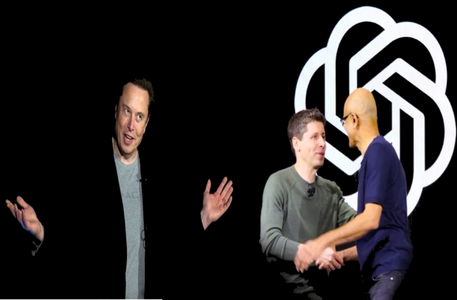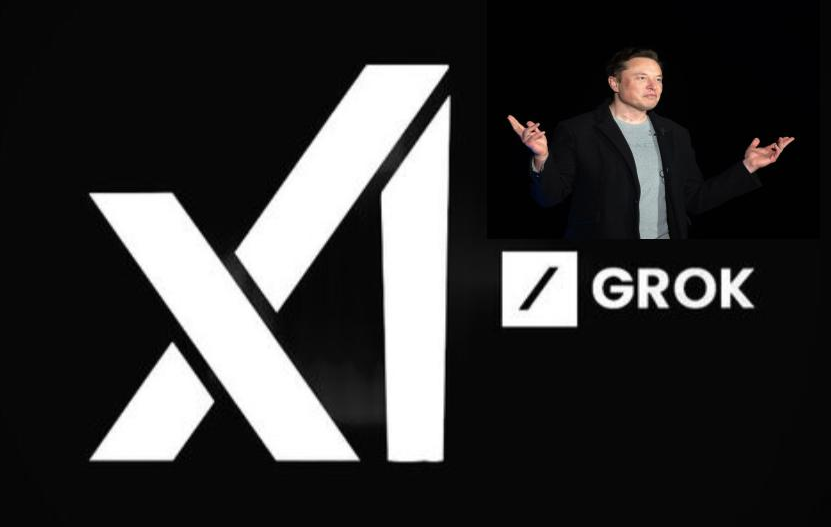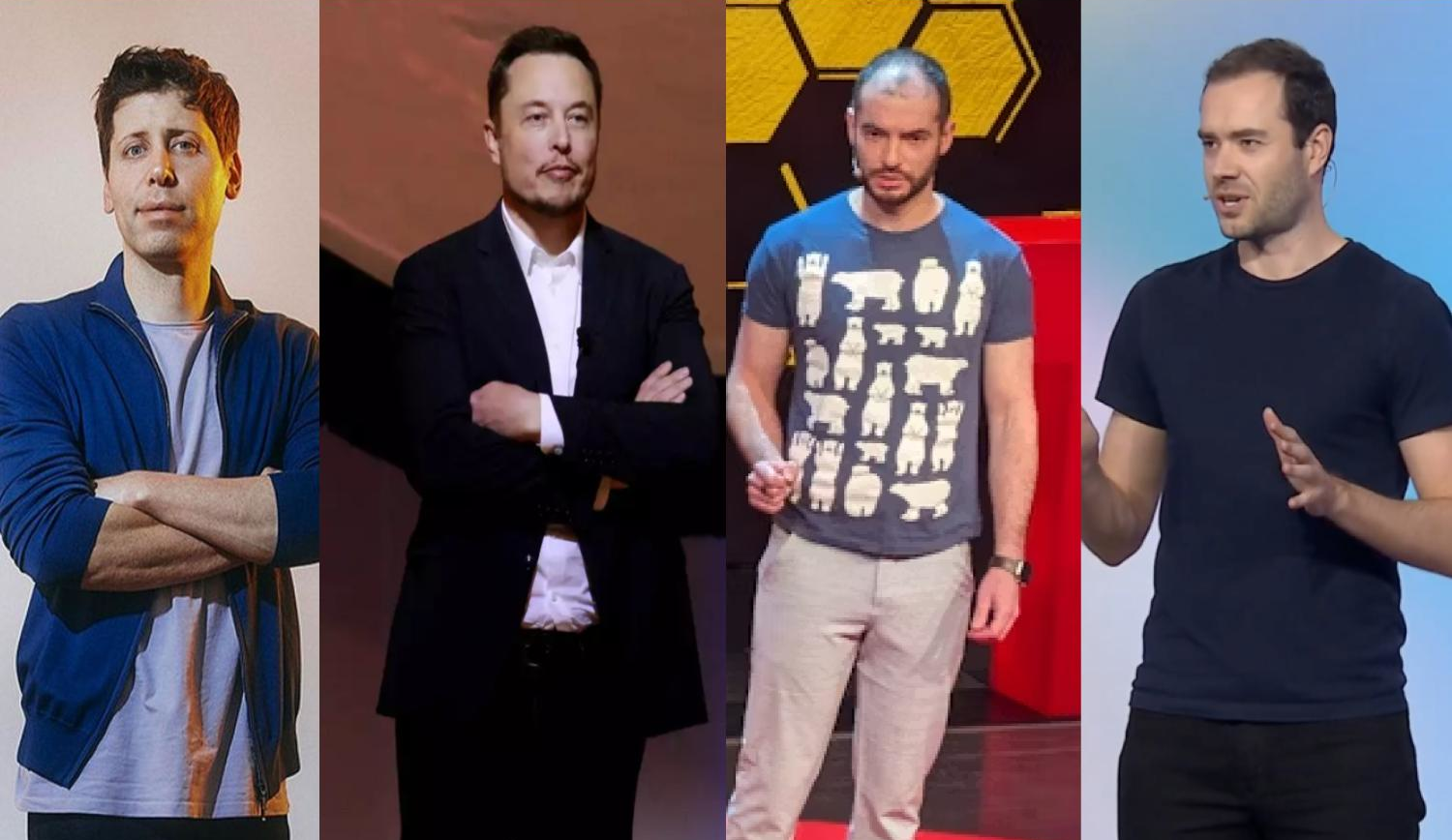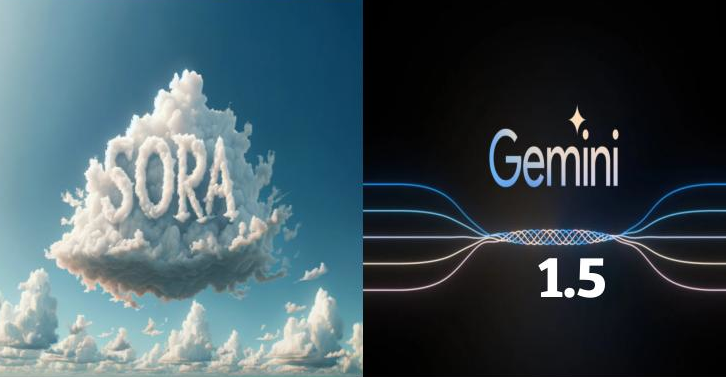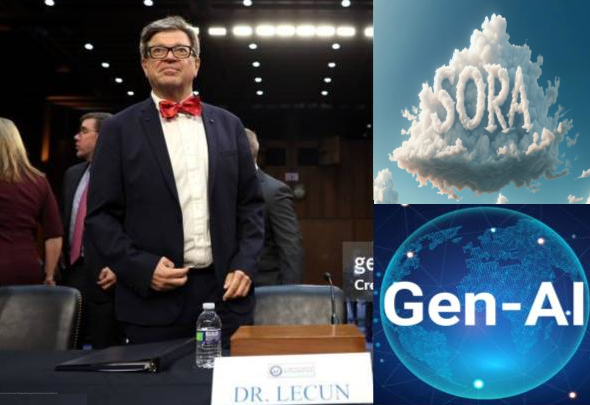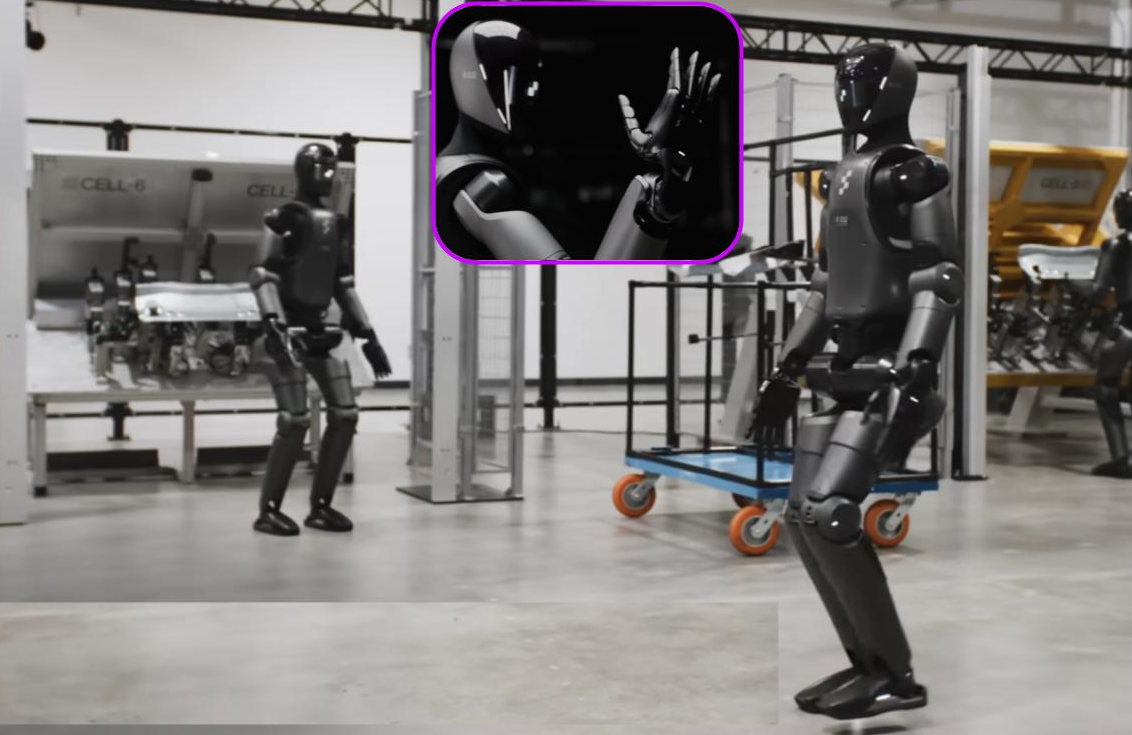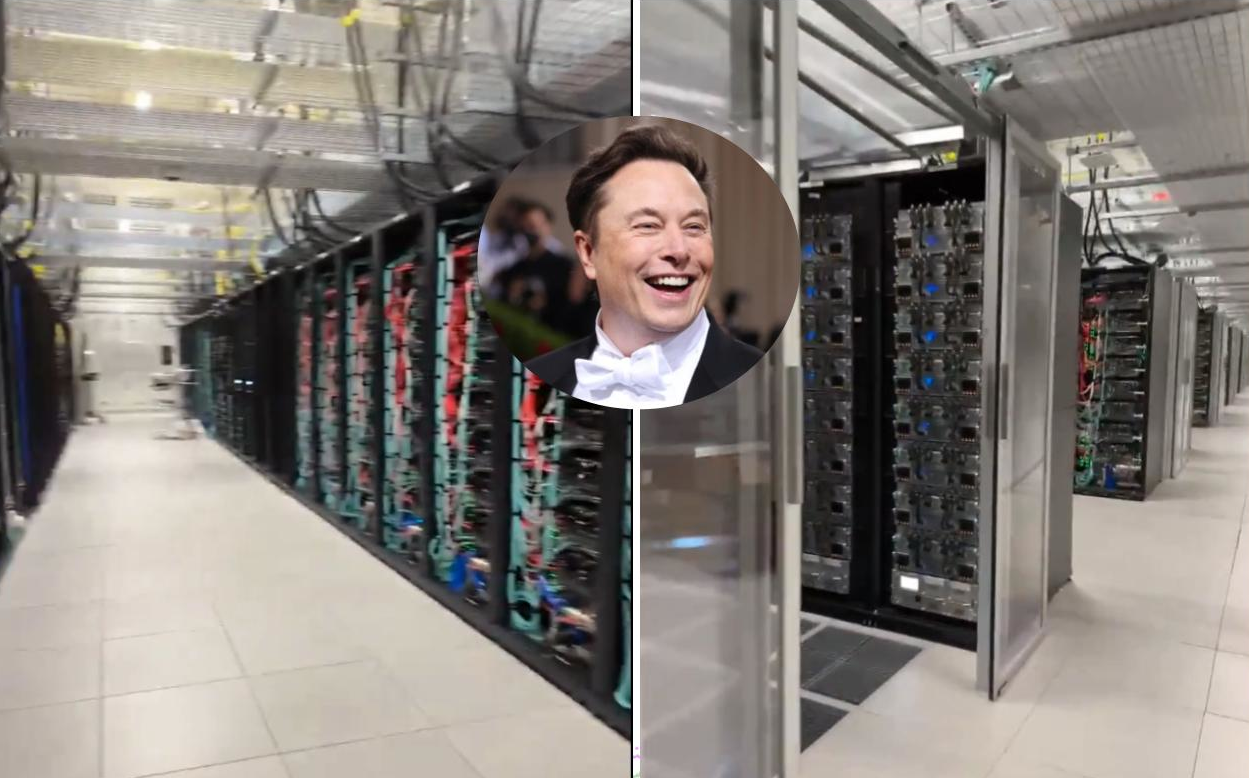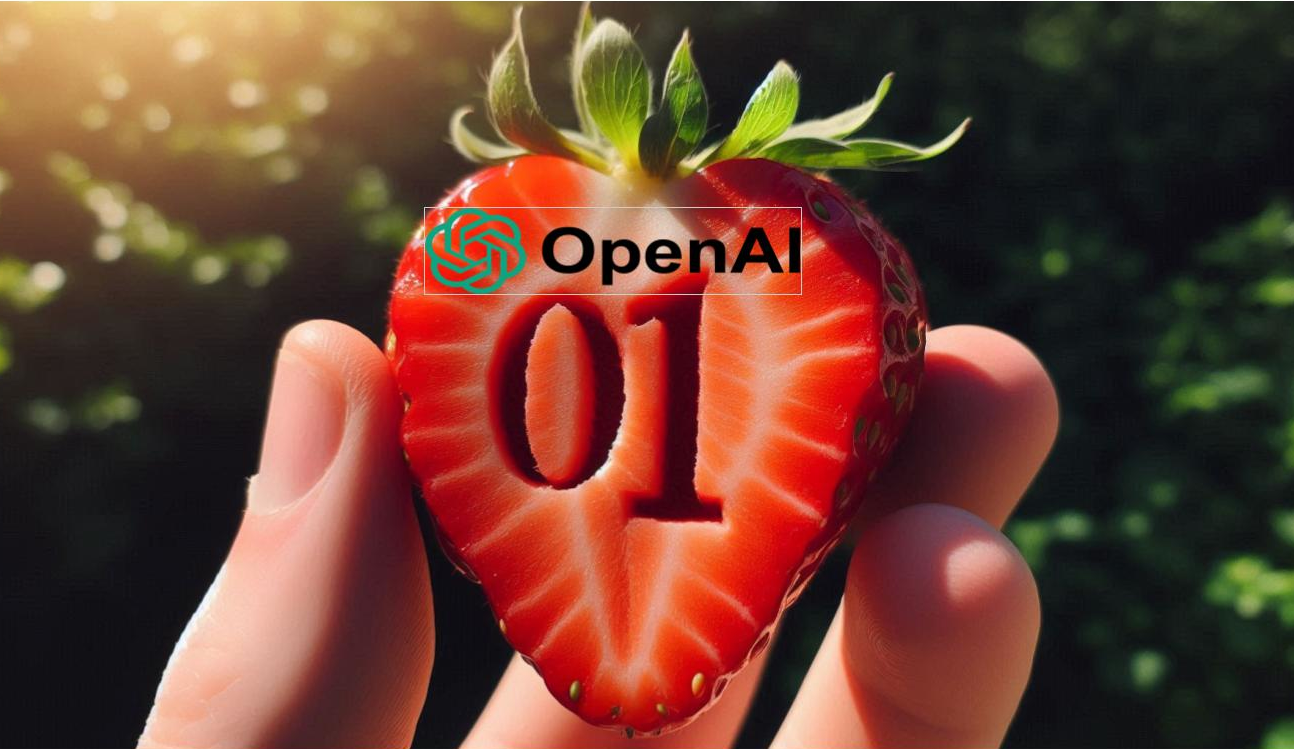Musk stated more than once that he found, after several conversations with Larry Page (co-founder of Google), that he was seeking to develop a closed, irresponsible artificial intelligence that could pose risks to humanity.
Musk’s concerns increased after Google acquired DeepMind (the most important artificial intelligence company at that time), which made him think about founding OpenAI as a non-profit organization that aims to develop open artificial intelligence that everyone can benefit from and prevent Google’s dominance. (See video with Lex Fridman).
OpenAI was launched in 2015 with support from tech stars like Musk, Reid Hoffman and Peter Thiel. It quickly attracted some of the best minds in AI. The founders, including Altman, Musk, and Brockman, agreed that the company would develop open source AI safely and for the benefit of humanity. Musk generously fund it and gave it the name OpenAI to indicate the open model it adopts compared to the closed model adopted by major companies such as Google and others.
Dispute and complaint
The partners later disagreed, and Musk did not succeed in taking charge of the company, so he left the company at the beginning of 2018 and stopped providing financial support to it.
On March 11, 2019, the non-profit company announced the creation of a for-profit entity to raise funds for the immense computing power required to train the most ambitious AI models. Less than six months later, OpenAI secured a $1 billion investment from Microsoft. The two partners have collaborated to build a powerful supercomputer for training massive AI models, which eventually resulted in the creation of ChatGPT and the image generator DALL-E.
After launching ChatGPT in November 2022, OpenAI quickly became the most sought-after startup in the technology space, and Musk’s concerns of closed AI development resurfaced and he began publicly criticizing the company.
On Feb. 17, 2023, he tweeted : “OpenAI was created as an open source (which is why I named it “Open” AI), non-profit company to serve as a counterweight to Google, but now it has become a closed source, maximum-profit company effectively controlled by Microsoft… Not what I intended at all.”
Then on March 15, 2023, he tweeted, “I’m still confused as to how a non-profit to which I donated ~$100M somehow became a $30B market cap for-profit. If this is legal, why doesn’t everyone do it?”
On March 9, Musk founded xAI (his AI company), which he announced publicly in July. Days later, Musk, Steve Wozniak and others called in an open letter to pause training of the most advanced AI models for 6 months to conduct further research into their risks or we could face “profound risks to society and humanity.”
Some suspected Elon Musk’s call for a pause was motivated by giving his new company time to catch up. However, this doesn’t erase his genuine desire for open-source AI. Despite their disagreements, Sam Altman acknowledges Musk’s genuine concern for the future of AI. Here’s what Altman said on the Swisher podcast: "To say a positive thing about Elon, I think he really does care about a good future with AGI,”
From Complaint to Lawsuit
At the end of February 2024, Musk’s complaints on X turned into a lawsuit against OpenAI, alleging that Altman and co-founder Greg Brockman had violated OpenAI’s founding mission to develop AI safely and for the benefit of humanity.
Musk’s lawyers allege that OpenAI has “become a de facto closed-source subsidiary of the world’s largest technology company” and is developing AGI to maximize Microsoft’s profits, not for the benefit of humanity.
OpenAI countered the lawsuit by releasing emails from 2017, predating Musk’s departure, where he urged the company to raise billions to compete with DeepMind. According to OpenAI, these emails demonstrate both Musk’s attempt to seize control of the company and his support for a closed AI model.
Musk’s Motives for the Lawsuit
Beyond a single motive, Elon Musk sues OpenAI for a web of reasons:
1- Musk’s concerns about AGI
Following the board's unsuccessful attempt to remove Sam Altman and Greg Brockman in November 2023, in which the Microsoft CEO played a key role, OpenAI had regained its leadership position in the AI field by February 2024. Their highly anticipated text-to-video model, Sora, generated significant buzz. However, they maintained their closed-source approach, keeping the details of Sora's architecture and training data under wraps.
Therefore, any hope Musk held for the company’s return to a more open AI model has faded, as Microsoft now exerting more control than ever.
2- The ability of xAI to compete
xAI, the company founded by Musk to rival OpenAI, is still far from reaching its goals, and the release of Sora has only widened the gap. Consequently, Musk’s aspiration to compete with OpenAI has also faded.
3- Musk’s Unredeemed Debt
Musk has provided $100 million in funding for OpenAI, and the latest news suggests the company is valued at $80 billion. It is not easy for anyone to accept that the company to which he paid $100 million turns into a company worth $80 billion without having any benefit from that, neither financially nor morally, as his original goals seem unachieved, and his contributions appear to be overlooked.
4- OpenAI Challenges Tesla’s Optimus
In a recent development, OpenAI has emerged as a competitor in Elon Musk’s ambitious project: humanoid robots. Musk previously claimed Tesla’s Optimus robot could become more valuable than electric cars. Now, he faces a significant challenge from OpenAI. Just days after Figure, a competing humanoid robot company, announced a collaboration with BMW to test its Figure 01 robot in a BMW factory, OpenAI announced its own investment in Figure and a partnership to develop AI for its robots.
Hence, the competition intensifies directly with Elon Musk. Many Tesla investors may place greater trust in OpenAI’s capacity to innovate more advanced AI for robotics. Everyone might think: what inhibits the company, which produced ChatGPT and Sora, surpassing all previous models, from replicating this success in the realm of robotics?
Open vs Closed AI
The outcome of Elon Musk’s lawsuit against OpenAI is significant, and while winning may not be the primary objective, its implications are profound. However, if he loses, it would serve as further validation of the superiority of the closed AI model over the open one, as envisioned by Musk when he founded the company.
He envisioned it as an open, non-profit model capable of competing with DeepMind’s commercial models. However, the substantial costs associated with training and operating advanced AI models make it unlikely that this open model will outperform and take a leading role in cutting-edge AI development.
Elon Musk’s vision has failed since he left the company and it turned into a for-profit company. But the open AI model still exists. Many academic institutions and private companies continue to release their models and training data, keeping the spirit of open AI alive and ensuring basic research and models remain available to everyone.
